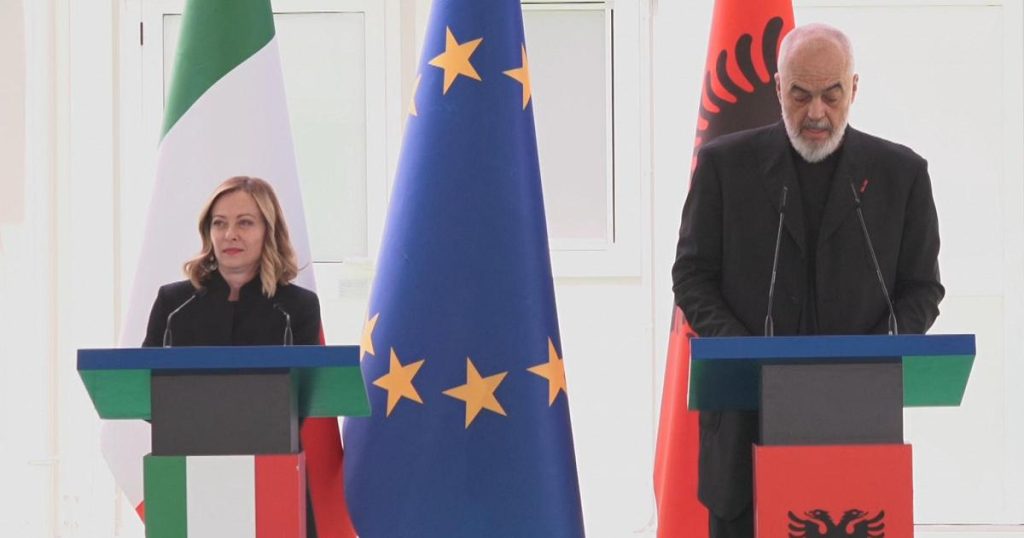In the final hours of the election campaign for the European elections, the focus is on one of the main themes at the center of the international political debate, especially considering how the issue of migration will be addressed by the next European Commission and the approach proposed by various political groups within the European Parliament. Premier Giorgia Meloni, who has focused her government’s actions on immigration issues from the beginning, particularly on combating illegal immigration, seems to be using the last days of the campaign to emphasize this issue. She visited Albania with Interior Minister Matteo Piantedosi to inspect the facility in Shengjin, which is ready to receive migrants arriving from Italy as part of the agreement signed last year with Albanian Prime Minister Edi Rama.
The facility, located about 70 kilometers from the capital, was just completed the day before Meloni’s visit. It can accommodate around 200 people who will then be transferred to facilities in Gjader to avoid overcrowding in Italian reception centers. Meloni and Rama also visited the area designated for processing asylum applications and deporting migrants who do not have the right to stay in Italy. Rama used the opportunity to criticize Italian media and journalists who have portrayed Albania negatively, denying any involvement of Albanian mafia in trafficking migrants. Meloni, on the other hand, thanked Rama and the Albanian people for their support and described the agreement as having a broad European scope.
The purpose of the visit, which opposition parties have labeled as an “electoral stunt,” is to assess the progress of the reception and detention centers in Shengjin and Gjader as outlined in the Protocol signed with Rama last November. The facilities, under Italian jurisdiction, are expected to be fully operational by the end of the year. According to the Protocol, the total number of migrants in Albania at any given time cannot exceed three thousand, and entry into Albanian territorial waters will be strictly controlled by Italian authorities. The Protocol will remain in effect for five years and may be renewed for an additional five years unless communicated otherwise by either party.
The premier’s denunciation of suspicious numbers from the recent click-day for legal immigration is believed to be linked to organized crime’s exploitation of legal migration channels for illegal activities. The opposition, particularly the Democratic Party (Pd), has downplayed the government’s enthusiasm for the agreement with Albania, referring to it as a “bluff’. The Pd criticized the makeshift nature of the reception center in Shengjin, calling it a rushed setup that will not serve its purpose until the main center in Gjadër is completed. Democratic Party deputies intend to bring up the costs of the premier’s visit to Albania in Parliament and question the effectiveness of the government’s actions.
Overall, the focus on migration policy in the final hours of the European election campaign reflects the importance of this issue in international politics and the different approaches proposed by political groups. The visit to Albania by Premier Meloni and Interior Minister Piantedosi highlights the significance of the agreement with Albanian Prime Minister Rama in managing migrant flows. However, criticisms from opposition parties about the timing and effectiveness of the government’s actions demonstrate the ongoing debate and scrutiny surrounding immigration policies and agreements in Europe. The future of migration management in the European Union will continue to be a key issue for policymakers and the public alike.


